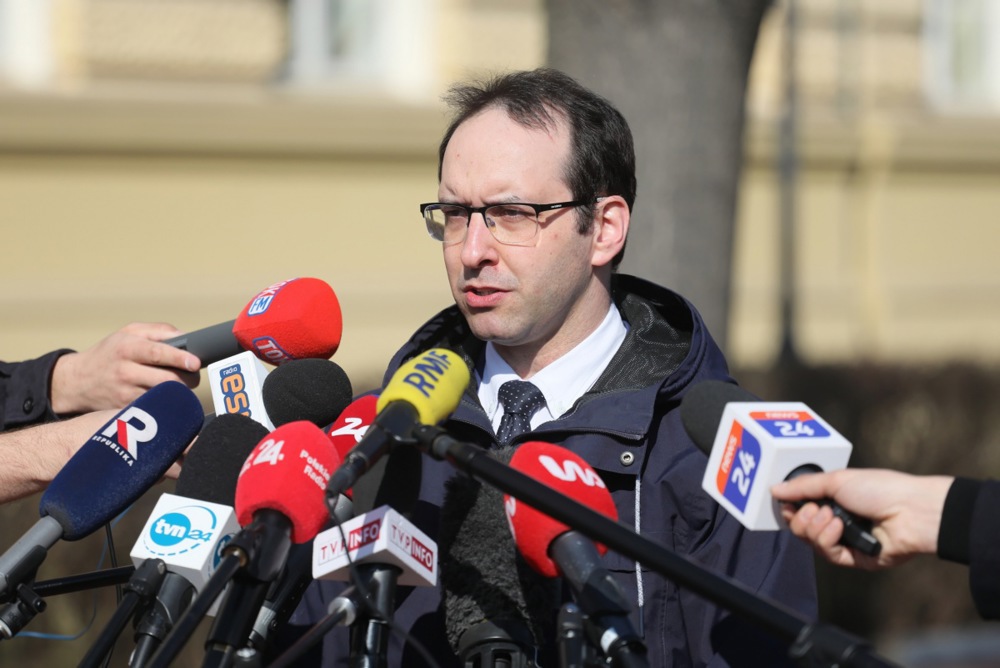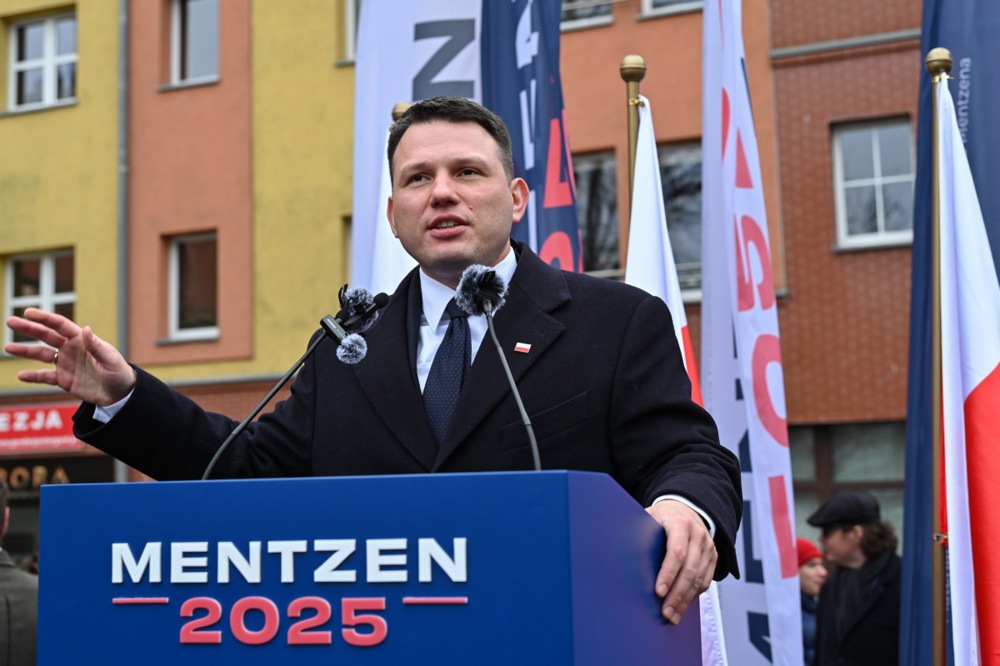Rafał Trzaskowski, from PM Donald Tusk’s ruling Civic Coalition (KO), narrowly won the first round of voting in Poland’s presidential election May 18.
Trzaskowski, with 31.4 per cent of the vote, was fewer than 2 percentage points ahead of Karol Nawrocki from the main opposition Conservatives (PiS), with 29,5 per cent, said the INFOS agency exit poll for the three main television networks.
However, taken together, Poland’s right-wing parties have secured over 50 per cent of the popular vote.
Confederation party candidate Sławomir Mentzen received 14.8 per cent, and maverick hard-right candidate Grzegorz Braun polled a surprising 6.3 per cent.
Meanwhile Tusk’s coalition partners polled poorly, with the Third Way’s parliamentary Speaker Szymon Hołownia and the Left party’s Magdalena Biejat both having a very disappointing night.
Hołownia was in place with 5 per cent. Biejat, with 4.1 per cent, trailed an independent anti-Tusk left-wing candidate, Adrian Zandberg (with 4.9 per cent).
The first-round outcome means Trzaskowski is no longer favourite to win in the second-round run-off on June 1.
Speaking about the result, Trzaskowski said “we knew it would be close and close it really is”.
“I am pleased that I have won the first round but there is much work before us,” he said.
Hołownia, his ally in the ruling coalition who made clear he would support Trzaskowski in the second round, said the result marked “a yellow card for the ruling coalition” which it should not ignore.
Nawrocki, who appeared much happier with the result, reached out to those who did not make it into the second round of voting.
“You need to think whether a monopoly of power for any party would be good for Poland and good for you,” said the PiS candidate.
He added his real opponent in the second round was PM Donald Tusk.
He called upon the ruling party to “allow for an honest and open debate that would be covered by all TV channels, liberal and conservative”.
In the second round, the “dirty campaign involving the security services and foreign funding” should cease, he said.
Nawrocki was alluding to allegations about security-service involvement in the release of documents about his property dealings.
There have also been claims attack ads against him and favouring Trzaskowski had been funded from abroad.
The PiS candidate will now need the support of both Mentzen and Braun supporters to overtake Trzaskowski.
This is not automatic as some of those voters may be tempted to stay at home, given past tensions between the PiS and the rest of the Polish Right.
All eyes will now be on the Confederation party to see whether it chooses to back Nawrocki in anticipation of a future governing coalition with PiS, or whether they choose to offer no support to either Nawrocki nor Trzaskowski.
An eventual defeat for the PiS could cause a split within the party, from which Mentzen’s party might benefit.
Mentzen, speaking to his supporters after the release of the exit polls, said that “it was a shame I did not make it into the second round as I had the best chance to beat Trzaskowski”.
He would not be drawn on whether he would urge his supporters to vote in the second round and for whom.
The estimated turnout on May 18 was 66 per cent. This was significantly down from the 75 per cent in the 2023 parliamentary election.





